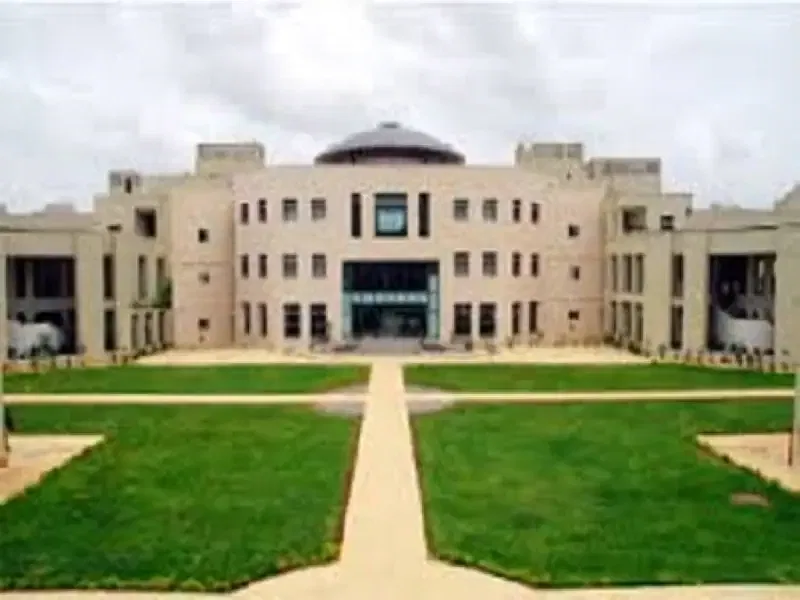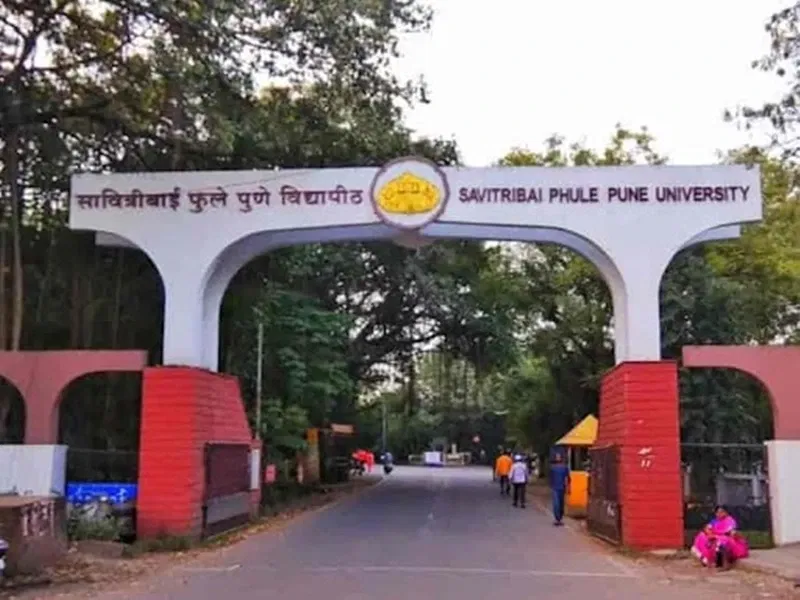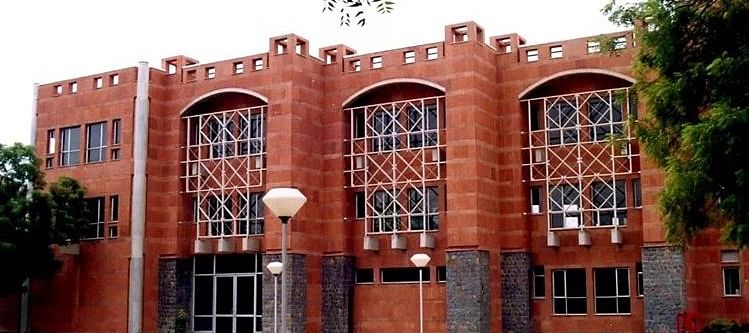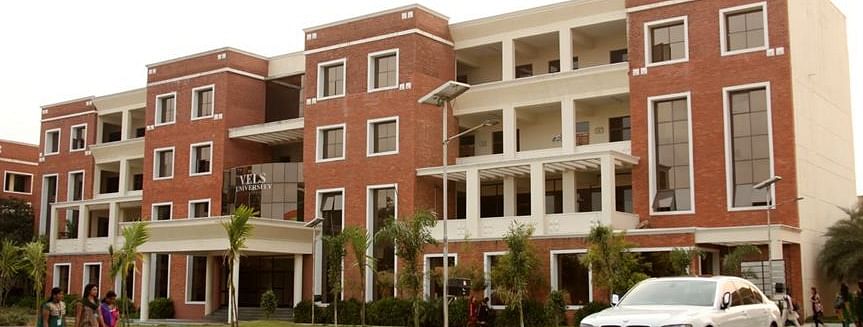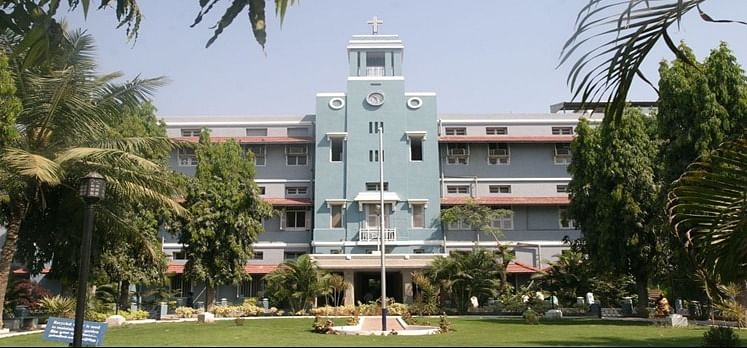BSc Optometry Syllabus and Subjects

The BSc Optometry Syllabus is divided into 6 semesters consisting of both core and elective subjects for three years. The BSc Optometry course focuses on enabling the students to gain the required knowledge in core subjects such as Clinical Psychology, Community and Occupational Optometry, Geriatric and Pediatric Optometry, General Anatomy and Ocular Anatomy, etc.
In addition to that, the course also allows students to choose elective subjects based on their interests such as Public Relations, Research Methodology and Statistics, Mathematics, Computer Basics, Accountancy Basics, etc.
Table of Contents
- Semester Wise BSc Optometry Syllabus
- First-Year BSc Optometry Syllabus
- Second-Year BSc Optometry Syllabus
- Third-Year BSc Optometry Syllabus
- BSc in Optometry Subjects
Semester Wise BSc Optometry Syllabus
The BSc in Optometry syllabus focuses on training the students on all aspects of theoretical and practical knowledge related to the human eye. The course also equips the students with the required skills in operating the various medical equipment to carry out medical procedures. The course covers both fundamentals and skill-based subjects. Listed below are the semester-wise breakdown of BSc Optometry Syllabus
First-Year BSc Optometry Syllabus
B.Sc Optometry 1st year syllabus includes subjects such as Anatomy, Physiology, Biochemistry, Pharmacology etc. Listed below are the BSc Optometry 1st year syllabus:
|
Semester I |
Semester II |
|
General Anatomy |
General and Ocular Biochemistry |
|
General Physiology |
General Anatomy and Physiology |
|
Geometrical Optics |
Physical Optics |
|
Environmental Physics |
General Biochemistry & Ocular Biochemistry |
Practical Topics in the First-Year BSc Optometry Syllabus:
Given below are the practical topics in the BSc in Optometry syllabus:
- Ocular Anatomy
- Basics of Computer
- Geometrical Optics-1
Second-Year BSc Optometry Syllabus
The BSc Optometry second-year syllabus focuses on more advanced subjects such as General Physiology and Ocular Physiology, Hospital Procedures, General Anatomy and Ocular Anatomy etc. Listed below are the BSc Optometry Syllabus for semester III and semester IV:
|
Semester III |
Semester-IV |
|
Visual Optics (Optics III) |
Visual Optics (Optics IV) |
|
Lighting & the Eye |
Ophthalmic & Optical Instrumentation & Procedure II |
|
Medical pathology & Microbiology (General & Ocular) |
Clinical Refraction I |
|
Ophthalmic & Optical Instrumentation & Procedure I |
Ocular Disease I (Anterior Segment Disease) |
|
Pharmacology |
Ophthalmic Lens & Dispensing Optics |
Practical Topics in the Second-Year BSc Optometry Syllabus
Given below are the practical topics in the BSc in Optometry syllabus:
- Optics & Ophthalmic Instrumentation II
- Clinical Refraction Practical
- Ophthalmic Lens & Dispensing Optics Practical
- Microbiology & Pathology
- Optics & Ophthalmic Instrumentation I
Third-Year BSc Optometry Syllabus
BSc Optometry third-year syllabus focuses on subjects such as Binocular Vision & Ocular Motility, contact lenses, visual aids and management etc. Tabulated below are the BSc Optometry Syllabus for semester V and semester VI:
|
Semester-V |
Semester-VI |
|
Binocular Vision & Ocular Motility |
Systemic Condition & the eye |
|
Contact Lens I |
Public Health & Community Optometry |
|
Clinical Refraction II |
Biostatistics |
|
Ocular Disease II (Posterior & Neuro-eye Disease) |
Contact Lens II |
|
Low Vision Aids & Visual Rehabilitation |
Professional Practice Management |
|
- |
Applied Optometry & Orthoptics |
Practical Topics in the Third-Year BSc Optometry Syllabus
Given below are the practical topics in the BSc in Optometry syllabus:
- Applied Optometry & Orthoptics
- Contact Lens II
- Clinical Refraction II
- Contact Lens I
- Low Vision Aids & Visual Rehabilitation
BSc Optometry Subjects
BSc Optometry Subjects foster a holistic understanding of the concepts of optometry, anatomy and physiology, optometry hospital procedures, pharmacology etc. B.Sc Optometry subjects first year covers the basics such as Anatomy, Physiology, Pharmacology, etc. BSc in Optometry subjects are classified into core and elective subjects. Given below are the subject details:
Core BSc Optometry Subjects
The BSc in Optometry core subjects helps the students understand human anatomy and physiology, drugs related to optometry, pharmacological effects of each drug, biochemistry, etc. Given below are the core subjects for BSc Optometry course:
- Contact Lens
- Geriatric Optometry and Paediatric Optometry
- General Biochemistry and Ocular Biochemistry
- General Physiology and Ocular Physiology
- General Anatomy and Ocular Anatomy
- Geometrical Optics
- Hospital Procedures
- Low Vision Aids
- Ocular Diseases and Eye & Systemic Diseases
- Optometric and Dispensing Optics
- Optometric Instruments and Clinical Examination of Visual System
- Pathology & Microbiology
- Pharmacology
- Squint and Binocular Vision
- Visual Optics
BSc Optometry Elective Subjects
The BSc Optometry elective subjects can be chosen by the students based on their area of interest, scope for higher studies, job opportunities etc. Listed below are the elective subjects for BSc Optometry courses:
- Basic Accountancy
- Basics of Computers
- Clinical Psychology
- Functional English and Communication
- Mathematics
- Nutrition
- Public Relations
- Research Methodology and Statistics
BSc Optometry Subjects in Detail
BSc in Optometry subjects covers both basic and advanced topics such as the composition of blood, cell structure, cardiovascular system, oculomotor system, nervous system, Anatomy of the muscular system, and Gametogenesis, Structure of DNA- Physical and chemical properties of DNA & RNA, etc. Given below are some of the important BSc Optometry subject lists along with the topics covered:
|
BSc Optometry Subjects |
Topics Covered |
|
General Physiology |
Biophysical & Biochemical Principles, Cell Structure, Blood Vascular system, Genetics |
|
Biochemistry |
Oxygen transporting protein, Vitamins, Amino Acids, Protein Structure, Basic outline of hormone action |
|
Ocular Anatomy |
Embryology –ocular, Orbit, Embryo, Cornea, Lens, Zonules, Uveal Tract & its vascular supply |
|
Lighting and the Eye |
Eye and Vision, Photometry, Guild Flicker photometer- Photocells photo multipliers, Light Sources, Light Installation |
|
Pharmacology |
Preparation and packaging of ophthalmic drugs, Drug action and effectiveness, Ocular penetration, Ophthalmic diagnostic drugs, Topical anaesthetics, Ophthalmic Drugs – antibiotics, corticosteroids, anaesthetics, viscoelastic agents. Antiglaucoma drugs. |
College-Wise BSc Optometry Syllabus
The syllabus for the BSc Optometry course may differ from college to college depending on the curriculum and program objectives. To learn in detail about a particular college BSc in Optometry syllabus, students can visit the college website and download the BSc Optometry Syllabus 2023 PDF. Below listed is the syllabus for BSc Optometry from top colleges in India:
Rajiv Gandhi University of Health Sciences BSc Optometry Syllabus
The Rajiv Gandhi University of Health Sciences syllabus focuses on three years of theory-based learning along with 6 months to 1 year of practical training with internships which enables the students to equip themselves with the industry-required skills and knowledge. Tabulated below is the BSc Optometry Syllabus in Rajiv Gandhi University of Health Sciences:
|
Semester-I |
Semester-II |
|
General Anatomy & General Physiology |
Computer Basics & Computer Programming |
|
Basic Biochemistry & Nutrition |
Functional English & Communications |
|
Ocular Anatomy, Ocular Physiology & Biochemistry |
Basic Accountancy |
|
Physical & Geometric Optics & Principles of Lighting |
Mathematics |
|
Semester-III |
Semester-IV |
|
Optometric Optics & Dispensing Optometry |
Medical Psychology |
|
Pharmacology, Microbiology & Pathology |
Clinicals |
|
Clinical Examination Of Visual System & Optometric Instruments Optometry |
- |
|
Visual Optics |
- |
|
Semester-V |
Semester-VI |
|---|---|
|
Contact Lenses |
Paediatric Optometry, Advances In Optometry & Binocular Vision |
|
Systemic and ocular diseases |
Clinical Posting |
|
Low Vision Aids & Geriatric Optometry |
Research Methodology & Biostatistics |
|
Practice management, law in optometry & occupational optometry |
- |
University of Mysore BSc Optometry Syllabus
The BSc Optometry syllabus at the University of Mysore focuses on the fundamentals and skill-based subjects such as Anatomy, Physiology, Biochemistry, and Pharmacology. Lighting and Eye etc. Given below is the University of Mysore B.Sc Optometry Syllabus:
|
Semester-I |
Semester-II |
|
Physical Optics |
Geometric Optics |
|
Anatomy and Physiology |
Ocular Anatomy and Physiology |
|
Biochemistry |
Microbiology |
|
- |
Physical and Geometric Optics |
|
Semester-III |
Semester-IV |
|
Optometric Optics |
Dispensing Optics |
|
Visual Optics-I |
Visual Optics-II |
|
Optometric Instruments and Examination of Visual System |
Systemic Disease |
|
Pharmacology |
Examination of Visual System (Practicals) |
|
- |
Pathology (Practicals) |
|
Semester-V |
Semester-VI |
|
Ocular Disease-I |
Occupational Optometry |
|
Binocular Vision-I |
Contact Lenses-II |
|
Low Vision Aid |
Ocular Disease-II |
|
Contact Lenses-I |
Binocular Vision-II |
|
- |
Geriatric and Pediatric Optometry |
|
- |
Contact Lens and Low Vision Aid (Practicals) |
BSc Optometry Project Topics
To gain a better understanding of the BSc Optometry syllabus and subjects, students are required to submit project or research work on topics related to B.Sc in Optometry. Listed below are some of the trending topics for project or research work:
- Effects of Caffeine on Tear Production
- A Pilot Study on the prevalence of colour vision deficiency among commercial motor vehicle drivers
- Assessment of Selected lens tints on visual function
- Anterior segment disorders and dry eye
- Glaucoma and visual function
- Retinal disease
- Clinical optics and myopia
- Low vision and mobility
- Paediatric vision
BSc Optometry Course Structure
The BSc Optometry course structure is a blend of theoretical concepts and industry-driven applications which includes an understanding of anatomical structure, standards and optometric procedures in healthcare facilities, clinical training, assessment and diagnostic studies, etc. Below is the BSc Optometry syllabus structure, which includes:
- VI Semesters
- Core Subjects
- Elective Subjects
- Clinical Posting
- Practical Sessions
- Internships
BSc in Optometry Teaching Methodology and Techniques
The BSc in Optometry syllabus includes both traditional and modern teaching methodologies such as clinical case studies, workshop and expert sessions, simulation labs, clinical postings, etc. Below listed are a few BSc in Optometry teaching methodologies and techniques:
- Case Study
- Group Projects
- Seminar and Workshops
- Guest Lectures
- Extra-Curricular Activities
- Industry Driven Internships
BSc in Optometry Books
The BSc in Optometry books help the students to gain an in-depth understanding of the concepts and clinical procedures related to optometry. Given below are some of the reference books for BSc Optometry:
|
BSc Optometry Books |
Authors |
Topics Covered |
|
The Eye: Basic Sciences in Practice |
John.V |
Eye and vision, including Genetics, Pharmacology, Microbiology, Immunology, Pathology, Neurophysiology, Neuroanatomy and Imaging. |
|
The Neuro-Ophthalmology Survival Guide |
Anthony Pane |
Practice Handbook that covers all aspects of optometry including the diagnosis, medicolegal issues, management etc. |
|
Pickwell's Binocular Vision Anomalies |
Bruce.J.W Evans |
Introduction to binocular vision, offering comprehensive theory, how-to clinical guidance, and a summary of current research in a single, consolidated volume with evidence-based references and challenges |
|
Clinical Procedures in Optometry |
Eskridge Amos |
Covers the primary care focus to delineate both general patient assessment and speciality aspects of care for the practising optometrist with step-by-step guide |
Top BSc Optometry Colleges
Top Science Entrance Exams
BSc Optometry Fee Structure
FAQs on BSc Optometry Syllabus and Subjects
Q: What are the subjects involved in BSc Optometry?
Q: Is there maths in BSc optometry?
Q: Is Optometry full of physics?
Q: What are the B.Sc Optometry first-year books?
